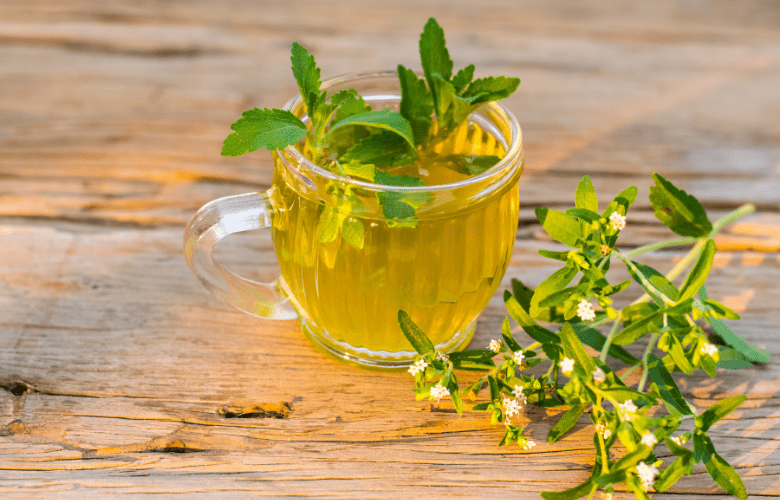Rheumatoid Arthritis: A TCM and Functional Medicine Approach
Chances are, you or someone you know suffers from osteoarthritis or rheumatoid arthritis. Both types of arthritis make joints stiff, swollen, and painful. Osteoarthritis, according to the CDC, affects as much as 23% of the U.S! It is among the most common form of arthritis diagnosed and is caused by the breakdown of cartilage between joints. This type of arthritis is often preventable and manageable with early detection.
With that said, we’d like to focus our attention on a rarer form of the condition – Rheumatoid arthritis (RA). This condition is an autoimmune disease, which means it is caused by an underlying issue that causes the body to attack itself. In the case of RA, the attack is aimed at the joints, deteriorating the tissues that surround them with the wrists, hands, feet, ankles, and knees being the most common targets of RA.
So what can you do about RA? Is it preventable? And can you find relief after onset?
Read on and find out!
WHAT IS RHEUMATOID ARTHRITIS?
From the Western Medicine perspective, Rheumatoid Arthritis (RA) is classified as a long-term inflammatory autoimmune disease, notable for causing painful swelling to different joints in the body. In RA, the immune system mistakes normal cells in the joint spaces for a “threat” and attacks as if they were a virus or bacteria. This causes the area to become inflamed, leading to pain, stiffness, structural changes in the joint area, and long-term damage. Commonly impacted areas are the joints of the hand, wrists, feet, knees, spine, and jaw, though other symptoms can include fever, fatigue, and weakness, and other organs, such as the lung and heart, can be impacted. The full mechanism behind why RA happens hasn’t been unraveled, but it does appear that a mixture of immunologic, genetic, and environmental factors set the stage for RA development. The disease can happen to anyone at any age but is more common in women and older individuals.
Rheumatoid Arthritis: A TCM and Functional Medicine Approach
In both traditional Chinese medicine and functional medicine, treatment approaches come from determining and targeting a disease’s root causes rather than just symptom support. As RA is a multifactorial condition, TCM and functional medicine treatments aim to address a number of different factors at once.
THE TCM PERSPECTIVE
In traditional Chinese medicine or TCM, we are pain-free when the substances of our body, such as Qi and Blood, are able to flow smoothly through our channels and vessels. When something gets in the way of this normal flow, such as pathological wind, heat, dampness, or cold, we see pain, achiness, and other discomforts follow. In TCM, an obstruction that leads to chronic joint pain and loss of mobility, such as in rheumatoid arthritis, is termed a Bi Syndrome.
TCM practices focus on re-establishing the unobstructed flow of the substances within our body, namely Qi, which is our body’s “energy” substance, and blood, which is the body’s nourishing fluid.
In RA we typically see some amount of deficient Qi and blood. There also tends to be a deficiency in the Kidney system, the organs where all the Yin and Yang of our body originate from. A deficiency of Kidney Qi can be to blame for fatigue and low energy and may also be accompanied by coldness, low mood, or anxiety. A deficiency of Kidney Yin may present itself as feeling warm at night. Because of these slight differences in root causes of RA, each individual’s TCM treatment will vary but typically will have three treatment goals: local support for painful joints, systemic support targeting root causes, and support for replenishing deficiencies.
In both Functional Medicine and Chinese medicine, the health of our physical, mental, and emotional selves are all connected. Though environmental influence is also a considerable factor, both functional medicine and TCM agree that psychological factors are thought to play a role in RA in general, with TCM specifying the potential impacts of unexpressed grief and anger, overwork, and lack of sleep.
In Chinese medicine, the internalization of anger is thought to result in inflammation and throws off the balance of our different internal organ systems. In particular, the balance between the Liver and Spleen is impacted. When these two organ systems become imbalanced, the flow in our body can become stuck and stagnate, producing heat and/or dampness, which then causes inflammation. Because of this, practitioners will aim to support both your physical discomfort as well as any potential emotional root causes that may be contributing to your RA.
CHINESE HERBS
Herbal support can be an important tool in treating rheumatoid arthritis.
The following formulas have been considered helpful in RA treatment plans:
Er Miao San Jia Jian – This formula helps to clear Heat and eliminate dampness from the channels of the body, helping to restore normal flow and eliminate pain. Recent research shows positive results for anti-arthritic activity.
Qiang Huo Sheng Shi Tang – This formula helps with eliminating dampness as well as expelling wind, which is thought to be the vehicle in which many pathogenic factors invade the body.
THE FUNCTIONAL MEDICINE PERSPECTIVE
In functional medicine, connections to the development of RA revolve around the triggers that can both influence our existing genes and cause dysfunction in the immune system. The support aims to target these triggers, as well as target our inflammatory pathways at their source. Modifying factors such as poor diet, high dietary sodium, smoking history, low antioxidant intake, and reduced diversity of gut flora species are important areas of attention. Our practitioners can also support individual factors, such as help with gastric discomfort from anti-inflammatory medications.
In functional medicine, factors that can influence our immune system and body-wide inflammation are a large part of the treatment focus. This includes protective dietary changes, removing reactive foods, increasing omega-3 and antioxidant-rich foods, supporting the gut microbiome and overall digestion, and stress management support. Exploring and reinforcing various contributors to RA, such as inadequate nutrient levels, hormonal imbalances, environmental toxicity, and intestinal permeability may be suggested. Depending on the severity of the disease, this approach may also include prescription medications to help with pain support. Thankfully, most functional medicine and TCM treatment tools work well with conventional medications you may already be taking.
NUTRITIONAL SUPPLEMENTS
Supplement support can be another impactful tool in treating rheumatoid arthritis. Examples of supplements considered for RA include:
Omega-3 Fatty Acids– Different dietary oils, such as fish and flaxseed oil, have been shown to improve pain and inflammation in those with RA when taken consistently. These oils have been shown to have a positive influence on the immune system.
Probiotics- Increased permeability in the gut has been associated with some RA cases, so increased support for the gut environment with beneficial flora strains can be a helpful intervention. Probiotics have been shown to reduce oxidative stress in the body, as well as positively modulate, or influence, the immune system. Some research has shown decreased markers for inflammation as well as improvements in tender and swollen joints with probiotic supplementation.
Curcumin- Many studies have shown curcumin to be helpful in decreasing pain and improving markers for inflammation through a variety of different biochemical pathways. A human study on RA sufferers found that this polyphenol significantly improved morning stiffness, walking time, and joint swelling.
DIET AND LIFESTYLE
There is so much we can do with a few tweaks to our daily routines. What we eat and how we move our bodies are critical to all aspects of our health. Read on for our favorite RA diet and lifestyle tips.
Eat More Antioxidants – In RA, arthritic joint spaces are constantly creating more free radicals, which our body attempts to combat with the use of antioxidants. The constant need for more antioxidants can lead to low antioxidant levels. Thankfully, fruits and vegetables are an accessible source of these powerful inflammation fighters. A colorful variety of fruits and vegetables will ensure you’re getting a diverse amount of bioflavonoids, which help to give these foods much of their vibrant color. A useful tool for discovering more nutrient-rich foods is the My Food Data database, which uses data sourced from the USDA Food Data Central.
Eat Anti-inflammatory Foods – Research shows a connection between the inflammatory potential of our foods and developing rheumatoid arthritis. This is no surprise, given the inflammatory nature of RA, but this is good news for how powerful each meal can be in our healing journey! Anti-inflammatory foods include antioxidant-rich fruits and vegetables, as well as anti-inflammatory oils like extra virgin olive oil and fatty fish like sardines and salmon. A useful diet to consider is the Mediterranean diet, which is naturally full of these foods.
Stay Active – Physical activity is one of the best non-medication treatment options recommended for those with RA. In recent studies, researchers found that those with RA who are consistently active show better markers in lab work, better self-efficacy, and higher overall motivation.
Avoid Smoking – Smoking has long been established as a risk factor for RA, in both the general population and in genetically predisposed individuals. Smoking increases oxidative stress in the body, increasing levels of free radicals and increasing inflammation and joint destruction. Avoiding smoking takes one more stressor off the table.
Find Your Support – A strong support network is an underappreciated tool when dealing with RA. This network can include your friends and family, your doctor, support groups, or a counselor. Having strong support and tools for stress management, such as mindfulness-based practices, have been linked to better overall wellbeing and decreased pain.
Need help getting to the root cause of your symptoms? Reach out to us to schedule your complimentary 15-minute appointment.













